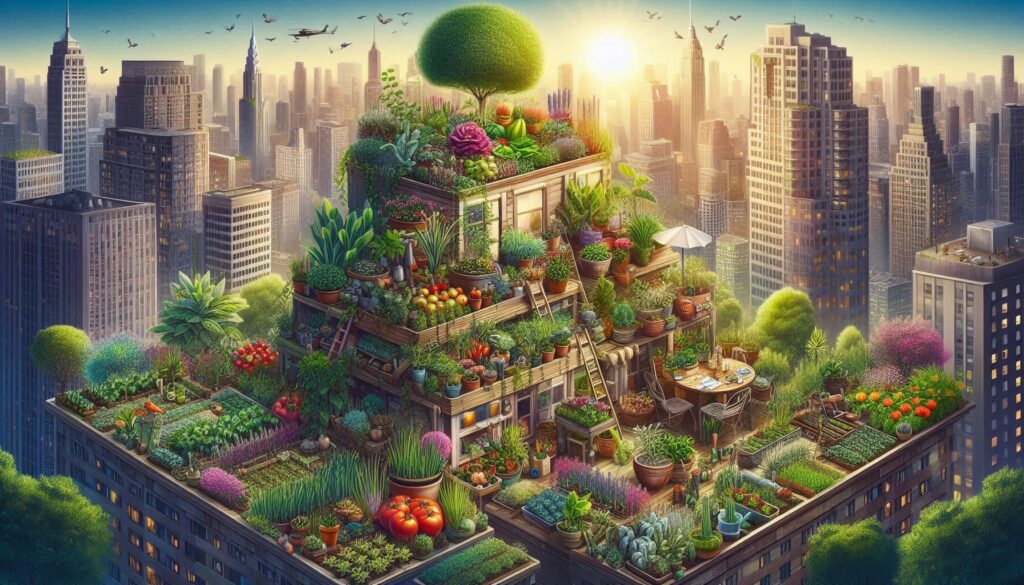Urban gardening is no longer just a trend—it’s a movement. With more people living in cities than ever before, the desire to reconnect with nature and grow fresh, organic food has led to a surge in urban gardening. Whether you have a balcony, rooftop, or just a sunny windowsill, you can start your own green oasis.
In this comprehensive guide, we reveal top urban gardening tips that will help city dwellers make the most of their limited space while enjoying the benefits of growing their own food.
Why Urban Gardening Matters Today
Urban gardening provides city residents with:
- Fresh organic produce
- Improved mental well-being
- Better air quality
- Reduced grocery bills
- Eco-friendly lifestyle
In crowded cities like New York, Los Angeles, and Chicago, people are transforming tiny spaces into productive gardens—and you can too.
1. Start Small and Build Up
If you’re new to urban gardening, don’t overwhelm yourself. Begin with easy-to-grow herbs like:
- Basil
- Mint
- Parsley
- Thyme
These herbs grow well in small pots and require minimal care. Once you gain confidence, expand to vegetables like cherry tomatoes, peppers, and lettuce.
SEO Tip: Keywords like “best herbs to grow in apartments” and “easy vegetables for small space gardening” have high search volume and can bring traffic to this section.
2. Choose the Right Containers
Not all containers are created equal. In small spaces, the right container can make a big difference. Use:
- Self-watering pots
- Vertical stack planters
- Window boxes
- Hanging baskets
Always ensure good drainage by adding holes at the bottom. Repurposed containers like mason jars, buckets, and crates also add a creative, eco-friendly touch.
3. Go Vertical
When you can’t grow out, grow up! Vertical gardening is a smart solution for space constraints. Use:
- Wall-mounted shelves
- Hanging shoe organizers (for herbs)
- Trellises for climbing plants like beans or cucumbers
- Stackable planters
Pro Tip: Search keywords like “vertical gardening tips for apartments” or “DIY vertical planters” have high monthly search volume and are perfect for content repurposing.
4. Select Plants That Love Urban Life
City environments can be harsh—limited sunlight, pollution, and confined space. Choose resilient plants such as:
- Lettuce
- Kale
- Radishes
- Chard
- Peppers
- Strawberries (great for hanging baskets)
These plants thrive in containers and adapt well to fluctuating temperatures.
5. Use Quality Soil and Compost
Don’t skimp on soil. Urban gardening success depends on:
- Nutrient-rich potting mix
- Organic compost (you can make your own)
- Worm castings for natural fertilizer
Poor soil equals weak plants, so invest wisely.
SEO Hack: “Best soil for container gardening” is a long-tail keyword with consistent monthly traffic. Include in your metadata or image ALT tags.
6. Make the Most of Sunlight
Track sunlight in your space. Most vegetables and herbs need at least 6 hours of sun per day. If sunlight is limited:
- Use grow lights (LED full-spectrum)
- Choose shade-tolerant plants like spinach or arugula
- Move containers throughout the day if possible
A light meter app can also help you measure exposure.
7. Water Smartly
Urban gardens often dry out faster due to heat and wind. Tips for smart watering:
- Water in the early morning or evening
- Use self-watering containers
- Mulch the topsoil to retain moisture
- Group plants with similar water needs
Avoid overwatering—urban gardeners often do more harm than good by flooding containers.
8. Keep Pests Away—Naturally
Yes, even in the city, pests are a problem. To manage them:
- Use neem oil or insecticidal soap
- Introduce ladybugs (they eat aphids)
- Grow companion plants like marigolds or garlic to repel pests
SEO Content Angle: “Organic pest control for balcony gardens” ranks well with urban gardening audiences.
9. Compost in Small Spaces
Think composting isn’t possible in the city? Think again. Try:
- Bokashi bins
- Worm bins (vermicomposting)
- Countertop composters
These systems are odor-free and ideal for kitchens or balconies.
10. Get Involved in Community Gardens
If your home doesn’t have enough space, join a local community garden. Many U.S. cities offer public plots for urban dwellers to:
- Grow their own produce
- Learn from fellow gardeners
- Build a sense of community
Check your city’s parks department or urban agriculture programs.
11. Use Tech to Your Advantage
There’s an app for everything—even gardening. Try:
- GrowIt! – Connect with local gardeners
- From Seed to Spoon – Track planting times
- Planta – Care reminders for watering and fertilizing
Urban gardeners benefit hugely from digital tools for tracking and troubleshooting.
12. Reuse and Recycle for Sustainability
Urban gardening is about innovation. Use what you already have:
- Tin cans for herbs
- Pallets for vertical gardens
- Recycled bottles for drip irrigation
Not only does this save money, but it also supports an eco-conscious lifestyle.

